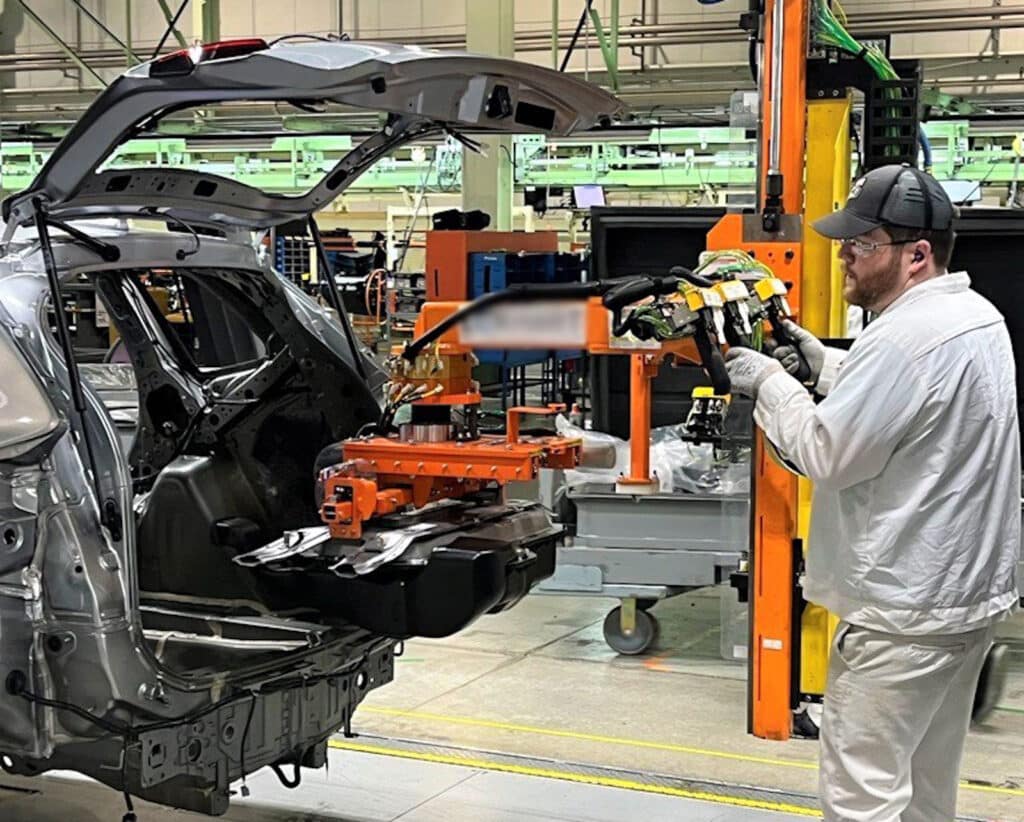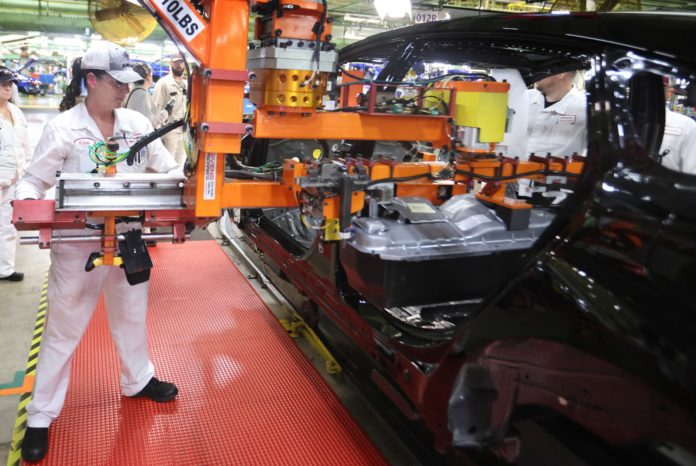Having announced organizational changes in January aimed at speeding its move to electrification, Honda Motor Co. released more details about its plans for electric vehicle, or EV, production in the United States.
The company further elaborated on its “EV Hub” in Ohio, plans first revealed last October. The company is spending $700 million to retool its current auto and powertrain plants in the region in addition to other costs involved with establishing U.S. EV manufacturing.
Changes in vehicle production
By January 2024, Honda will begin combining two of its production lines at its Marysville Assembly Plant that currently manufacture internal combustion engines and hybrid-electric vehicle systems. This will enable the car manufacturer to start constructing the infrastructure required for EV production. Programs for training employees in the skills necessary for EV manufacture will start later this year.
With the Marysville Assembly Plant undergoing transformation to EV production, Honda will move manufacturing of the Honda Accord to its Indiana Auto Plant in Greensburg, Indiana, southeast of Indianapolis in 2025.
Keeping the parts straight
But beyond vehicles, component production is also being shifted.

Two generations of V-6 engines, currently built at the Anna Engine Pant in Anna, Ohio, north of Dayton, will move to Honda’s Alabama Auto Plant in Lincoln, Alabama, east of Birmingham. This includes machining of the engine head for Honda light truck V-6s, which starts this month at Anna, as well as engine block casting for the new V-6 engine for the 2023 Honda Pilot, which moves to Anna in August.
The moves allow the Anna facility to prepare for future IPU Case manufacturing. The cases will be fitted to battery modules produced at the new $3.5 billion joint venture battery facility Honda is establishing with LG Energy Solution in Fayette County, near Jeffersonville, Ohio. The batteries will be fitted to EVs built at Honda’s Marysville and East Liberty factories. The 2 million square-foot plant is scheduled to be finished by the end of 2024 and have a production capacity of 40GWh annually.
Finally, at its transmission plant in Tallapoosa, Georgia, west of Atlanta, Honda is partnering with an unnamed supplier to manufacture e-axles, a crucial EV component that combines the electric motor, gearing components and power electronics.
The company expects to sell 2 million EVs annually by 2030, have a fully electric vehicle line-up by 2040 and be completely carbon neutral by 2050.
Other EV plans

Meanwhile, Honda continues with its plans to sell an all-new, hydrogen-powered version of its CR-V crossover using a fuel-cell system developed as part of a joint venture with General Motors. The automaker only expects to sell about 2,000 a year. But Honda believes that will grow to a few hundred thousand units per year by the second half of the 2030s.
Honda and General Motors have engaged in a series of agreements during the past several years for alternative fuel vehicle technology, such as fuel cells, batteries and, now, full-on battery-battery electric vehicles.
The two automakers are developing a number of electric vehicles together based on GM’s Ultium battery technology with the first of these shared vehicles arriving in 2027.
Honda’s American footprint
Despite all the changes, Honda plans to continue production of both internal combustion engine vehicles and gas-electric hybrids.
During the changes, Honda anticipates maintaining employment across all of its facilities. More than two-thirds of Honda and Acura vehicles sold in the United States in 2022 were produced here, so these changes are crucial for the automaker to begin EV manufacturing in America.
Honda’s 12 plants have an annual capacity of more than 1.27 million automobiles, 1.52 million engines, 500,000 power equipment products and 300,000 powersports products, as well as the HondaJet and GE Honda HF120 turbofan engines. The company employs more than 22,000 stateside. In all, Honda has spent $19 billion, including more than $3.2 billion in the last five years, on its American manufacturing facilities. The corporation also collaborates with more than 600 American original equipment manufacturers since establishing U.S. manufacturing operations in 1979.

